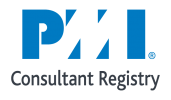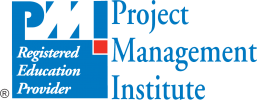Taking It to the Next Level: Portfolio Management
By Wanda Curlee
As a project manager, you may have worked within a program or portfolio, or both. You may have seen what seemed to be a successful project slowed or canceled, and been confused or upset by this. Why would higher-ups end a project that’s proceeding within scope and budget and on schedule?
The answer, most likely, has to do with the project’s position relative to the organization’s strategy and the portfolio in which the project resided. While working in the for-profit world and consulting on U.S. government projects, programs and portfolios, I’ve learned that program and portfolio managers in all sectors have to make tough decisions about which projects to deprioritize or cancel.
Back when I was a project manager — I earned my Project Management Professional (PMP)® in 1993 — I found myself on the receiving end of bad news from program and portfolio managers. I responded by asking questions to learn as much as I could from the portfolio or program manager. My initial goal was to mature my project management skills, but I ultimately decided I wanted to work at the portfolio level.
Portfolio management is an area of growing interest within organizations and at PMI. The institute’s newest certification, the Portfolio Management Professional (PfMP)®, is an expression of that. I had the opportunity to help define the PfMP® by serving on the core team that established the first iteration of the certificate, which launched in August 2014.
Some may think PMI mainly offers specialty certifications, such as risk (PMI-RMP)®, schedule (PMI-SP)® or agile (PMI-ACP)®. In fact, the PfMP offers a different kind of path, one that can help practitioners build a more strategic mindset and skill set within the world of project management.
Portfolio Management 101
So what do portfolio managers do?
First of all, a portfolio manager normally works for a C-level executive or a business unit head. While project/program management experience is not a requirement to be a portfolio manager, it can be a valuable entry point.
The portfolio manager structures the portfolio to meet the strategic needs of an organization. She views projects and programs from a strategic perspective. Whereas the project manager is worried about doing things right, the portfolio manager is worried about doing the right things.
Each of these roles is very important to the success of the organization. Let’s go back to the scenario above, where a project manager is annoyed by the cancellation of a project that was tracking well.
Think about it from the portfolio perspective: The portfolio manager may have canceled your project because another business unit started implementing something similar. The portfolio manager has to decide which project should continue and which shouldn’t.
Ready for a Career Pivot?
Okay, perhaps you’re ready to move into portfolio management. What’s the best way to transition out of the project level?
In my case, I looked for projects that matched the strategic needs of the organization. I tried to work at companies that were growing or changing. I volunteered to take the helm of projects that seemed difficult. Eventually, I managed my first portfolio.
Above all, I recommend pushing yourself to maximize experiences that help you understand the business. Strive for positions that expose you to strategy.
Also, remember that your expertise in project management can help you stand out from other portfolio manager candidates. You know how to measure success, and you have the discipline to run governance for a portfolio.
Is it worth your while to strive for the PfMP credential at some point? In one word: yes. I believe it will come to be recognized as the mark of in-depth portfolio management skill and experience.
Why do I think that? Well, back in 1993, when I earned my PMP, there were fewer than 1,500 people with that credential. Today, of course, more than half a million people have a PMP.
The PfMP is just getting started, but we’ve already seen a 57 percent jump in certifications since its official launch last year. By definition, there will always be fewer portfolio managers than project managers in the world — but I see a bright future for this line of work.
This article was originally posted on projectmanagement.com
Do you want to earn your PfMP? Contact us.
Would you like to use or improve portfolio management in your organization? Contact us.
 |
Dr. Wanda Curlee is the Principal Consultant for BRISK Business. She is active with the Project Management Institute’s certification and standards teams. She serves on the Requirements Practice Guide core team and was part of the team that developed the Portfolio Management Professional (PfMP) certification. Dr. Curlee has published three books; two delve into complexity theory and one is about virtual PMOs. She has earned four PMI credentials: PfMP, PgMP, PMP and PMI-RMP. |

